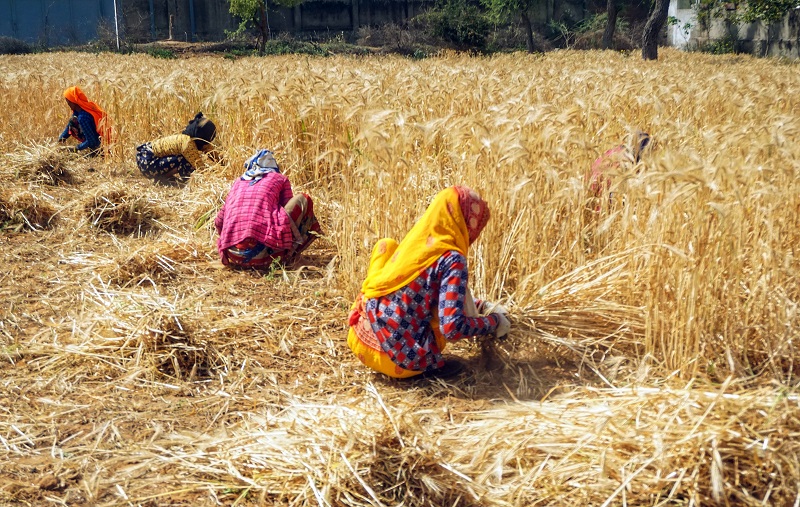The World Food Program estimates that Ukraine’s grain supply feeds some 400 million people. Yemen, for example, relies on Ukraine for a third of its wheat supply. And Egypt derives 85% of its wheat and 73% of its sunflower oil from Russia and Ukraine.
The conflict in Ukraine has served to highlight the significance of both Russia and Ukraine in the global food and natural resource supply chain. In 2020, Russia produced about 11% of the global supply of oil, 25% of palladium and 15% of coal. Prior to the Covid-19 pandemic, in 2019, Russia and Ukraine jointly produced about a third of the world’s supply of wheat, 18% of its corn, and half of its sunflower oil. The top three purchasers of Russian wheat at the time were Egypt, Turkey and Bangladesh (followed by Nigeria, Yemen, Azerbaijan, Sudan, the UAE, Senegal, Vietnam). The top three purchasers of Ukraine’s wheat were Egypt, Turkey and Indonesia (followed by the Philippines, Tunisia, Thailand, Morocco, South Korea, Spain and Israel). Russia and Ukraine’s failure to provide a reliable supply of wheat to these nations could lead to profound social unrest, with the potential to lead to political violence.
Many of the governments of these countries have consistently struggled to meet the basic needs of their citizens and had already been hit hard by the pandemic. It would not take too much additional strain on the system to prompt individuals who are already marginalized to become violent upon experiencing food shortages. This occurred in 2008 in the aftermath of the Arab Awakening throughout Africa and the Middle East, and again in 2011. Approximately 90% of Africa’s imports from Russia in 2021 was wheat, so its continued supply to the continent is crucial.
In March, the UN Food and Agricultural Organization released a report stating that global cereal production was forecast to increase a fraction of a per cent in 2022. But despite the plentiful supply, demand has also risen. In 2021, the FAO’s food price index rose to its highest level since the food riots of 2011, with rising food costs exacerbating spiraling inflation. In addition, the rising cost of natural gas (which rose to its highest level since 2014 in 2021) contributed to soaring fertilizer costs (Russia happens to be the largest exporter of fertilizer in the world). As of mid-March, Ukraine had already ceased exports of grain and Russia had ceased exports of fertilizer. Numerous countries had, in response, begun to ration wheat.
As a result of the economic sanctions that have been imposed on Russia in recent weeks, commodity prices continue to rise and Moscow continues to limit exports of food staples so that it may meet the needs of its domestic population. Governments throughout the world are similarly banning exports of food staples to preserve their ability to feed their own people. This raises the real prospect of food insecurity to a large proportion of the world’s population in already vulnerable developing countries.
The World Food Program estimates that Ukraine’s grain supply feeds some 400 million people. Yemen, for example, relies on Ukraine for a third of its wheat supply. And Egypt derives 85% of its wheat and 73% of its sunflower oil from Russia and Ukraine. Prices for these products have skyrocketed as much as a 44% in a matter of days. Such supply constraints and price inflation are clearly unsustainable.
Although it has been a decade since food riots spread throughout the developing world, that prospect now appears probable. It is incumbent upon the world’s multilateral institutions to provide additional financial assistance to governments without delay so that they can feed their people. In addition, ways should be found to expand the range of available food suppliers and means of food distribution should be enhanced.
As tragic as the Ukraine conflict has been for so many people in such a short period of time, it provides us with an opportunity to recalibrate our focus and redouble our efforts to minimize the impacts of food insecurity. While so much aid is now being directed at Ukraine, we must not forget the plight of hundreds of millions of hungry people throughout the world who continue to suffer from food insecurity and the prospect of political violence that could result.
Daniel Wagner is senior investment officer for syndications and guarantees at the Asian Infrastructure Investment Bank in Beijing. The contents of this work do not necessarily represent the views or policies of AIIB, its Board of Directors or its members. Any designation of or reference to a specific territory or geographic area, or the use of the term “country” in this work does not constitute and shall not be construed as constituting an express or implied position, endorsement, acceptance or expression of opinion by AIIB as to the legal or other status of any territory or area.

